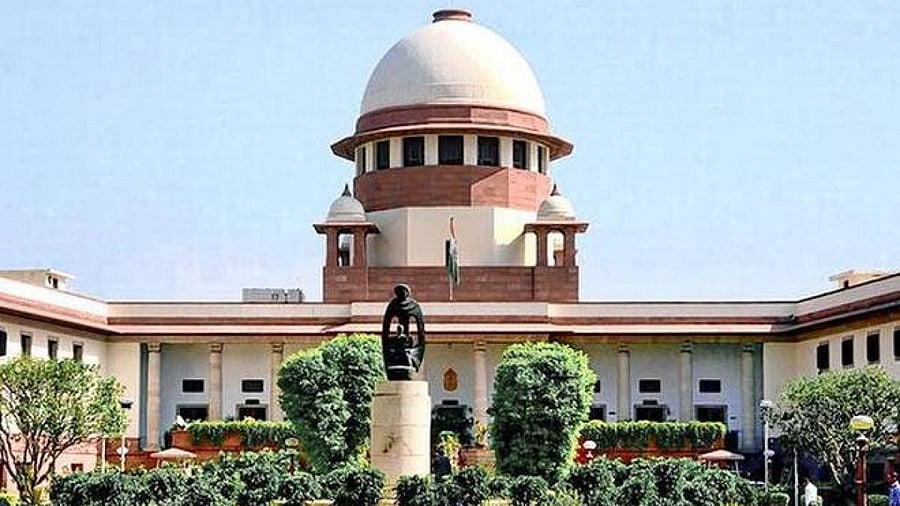
The Supreme Court of India
PTI
New Delhi: The Supreme Court has said that a woman is entitled to claim maintenance under Section 125 of the Criminal Procedure Code from her second husband, even though her first marriage is alleged to be legally subsisting.
A bench of Justices B V Nagarathna and Satish Chandra Sharma allowed a plea by a woman against the High Court's order of 2017, which held that she could not be considered the legal wife of the respondent man as her first marriage with another man was still subsisting. The High Court, however, allowed the plea for such maintenance to a daughter born to the couple.
Examining her plea, the bench said it must be borne in mind that the right to maintenance under Section 125 CrPC is not a benefit received by a wife but rather a legal and moral duty owed by the husband.
Her counsel said the woman and the respondent man were de facto living as a married couple and raising a child together, the benefit of maintenance should be extended to her. He also submitted the factum of the first marriage was not concealed from the second husband.
The man, on the other hand, contended as appellant-woman has a legally subsisting marriage with her first husband, she cannot be considered his wife and claim maintenance under Section 125 CrPC.
In its judgment, the bench said, "In the opinion of this court, when the social justice objective of maintenance under Section 125 CrPC is considered against the particular facts and circumstances of this case, we cannot, in good conscience, deny maintenance to appellant number one."
The court also pointed out, it is settled law that social welfare provisions must be subjected to an expansive and beneficial construction.
The court opined, in the case, an alternate interpretation would not only explicitly defeat the purpose of the provision by permitting vagrancy and destitution, but would also give legal sanction to the actions of the respondent-man in knowingly entering into a marriage with appellant-woman, availing its privileges but escaping its consequent duties and obligations.
"The only conceivable mischief that could arise in permitting a beneficial interpretation is that the appellant-woman could claim dual maintenance--however, that is not the case under the present facts," the bench added.
The court relied upon the recent landmark judgement of the Supreme Court in 'Mohd Abdul Samad Vs State of Telangana and Another' (2024) which has shed greater light on this duty upon the husband in the Indian context.
"We are aware that this court has previously denied maintenance in cases of subsisting marriages. However, a plea of separation from the first marriage was not made in those cases and hence, they are factually distinguishable," the bench said.
In the present case, the woman got married in 1999 in Hyderabad. She gave birth to a male child in 2000. On return from the USA in 2005, the couple began living separately.
On November 25, 2011, by a memorandum of understanding, the couple dissolved their marriage.
Two days after on November 27, 2011, the woman got married with her neighbour, the respondent man here. However, within months, the respondent man approached the Family Court seeking dissolution of the marriage. The court declared it null and void on February 1, 2006.
Within days, however, on February 14, 2006, the woman again got remarried with the respondent man. A daughter was born to the couple on January 28, 2008.
However, differences again arose between them and the woman lodged an FIR against the respondent man and his family members for dowry harassment. She approached the family court for maintenance for herself and the daughter. The court in 2012 granted her and the daughter a monthly sum of Rs 5000 and Rs 3500 respectively. On appeal by the respondent man, the High Court had set aside the maintenance order for her.
